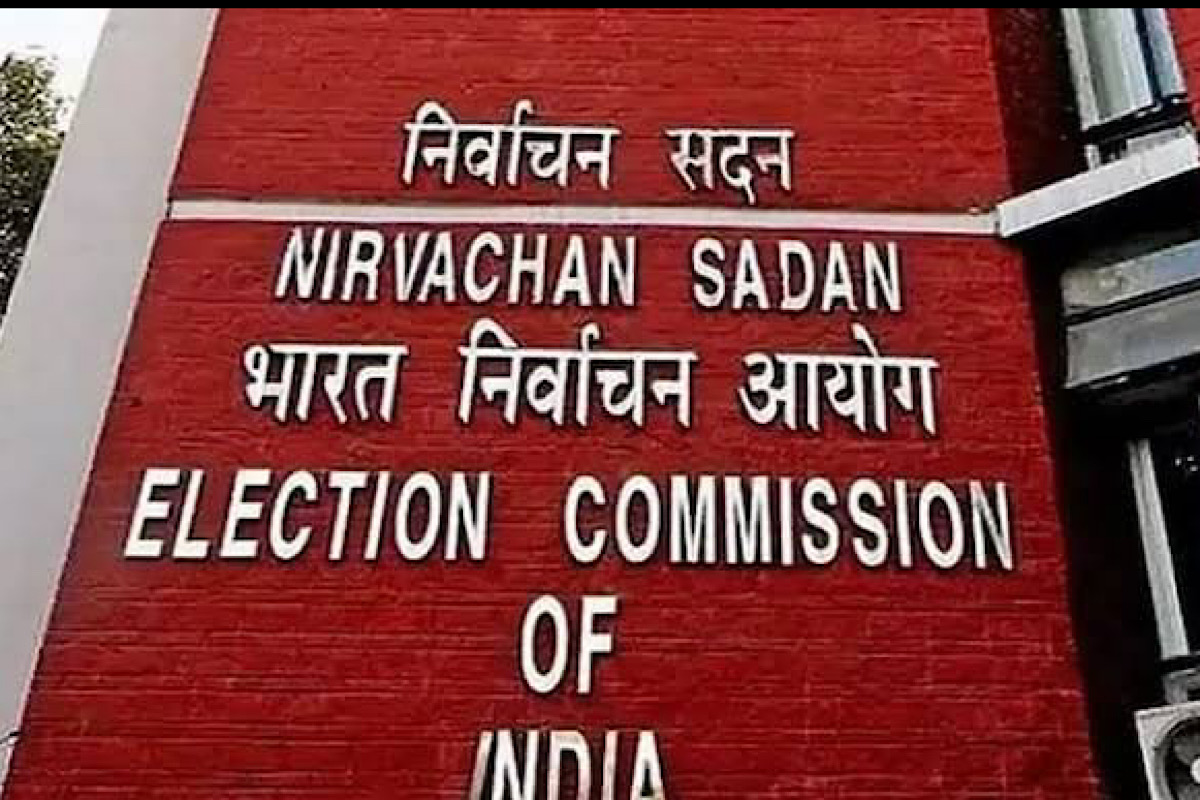India’s Got Latent: SC issues notice on YouTuber Ashish Chanchlani’s plea against FIRs
SC issues notice on YouTuber Ashish Chanchlani’s plea to quash or transfer FIR in India’s Got Latent case; tagged with Ranveer Allahabadia’s petition.
Issuing notice to the Central government and the poll panel, a bench comprising Chief Justice D Y Chandrachud, Justice J B Pardiwala, and Justice Manoj Misra tagged the petition along with already pending matters on the same issue.

Election commission of India (Photo:ANI)
The Supreme Court has sought a response from the Central government and the Election Commission of India on a plea seeking direction that the promise of freebies, made by political parties in the run-up to elections, be declared a bribe and a corrupt practice under the Representation of People Act, 1951.
Issuing notice to the Central government and the poll panel, a bench comprising Chief Justice D Y Chandrachud, Justice J B Pardiwala, and Justice Manoj Misra tagged the petition along with already pending matters on the same issue.
Advertisement
The petition by Shashank J Shreedhara – a resident of Karnataka – has also sought direction to the poll panel to take immediate and effective steps to prohibit political parties from making promises of freebies during the period before the election. The petition has further stated that the unregulated promise of freebies imposes a significant and unaccounted financial burden on the public exchequer.
Advertisement
The petition filed through advocates, Vishwaditya Sharma and Balaji Srinivasan, has further stated that there exists no mechanism to ensure the fulfillment of pre-poll promises on which votes are secured.
“The petition is seeking declaration that the promise of freebies, particularly in the form of cash, made by political parties during the run-up to Assembly or General elections, to be funded from the public exchequer post-election if their party forms the government, constitutes a corrupt practice of inducement to vote by way of offering bribe under the Representation of the People Act, 1951 attributable to the candidates of such political party,” the petition has stated.
Stating that the political parties often announce such freebies without disclosing how these promises will be funded, the petition by the Karnataka resident says, “This lack of transparency ends either in a failure to fulfill such promises, thereby committing a fraud on the electorate or in the introduction of populist schemes aimed at garnering future votes, which imposes an undue and disproportionate burden on public funds, thereby committing fraud on the Constitution.”
The petitioner said that the practice of freebies “undermines the principle of free and fair elections by creating an uneven playing field”, where voters are influenced not by the policies or governance record of the candidates, but by the allure of immediate personal benefits.
This reduces the electoral process to a transactional exercise, where votes are essentially purchased through promises of future rewards, says the petition.
“Despite the growing menace of pre-poll promises of freebies, the Election Commission of India, as the custodian of free and fair elections, has failed to take adequate steps to curb this practice. The Election Commission has a constitutional duty to ensure that the electoral process is not vitiated by unethical practices and that elections are conducted in a manner that upholds the integrity of democracy,” states the petition.
Advertisement